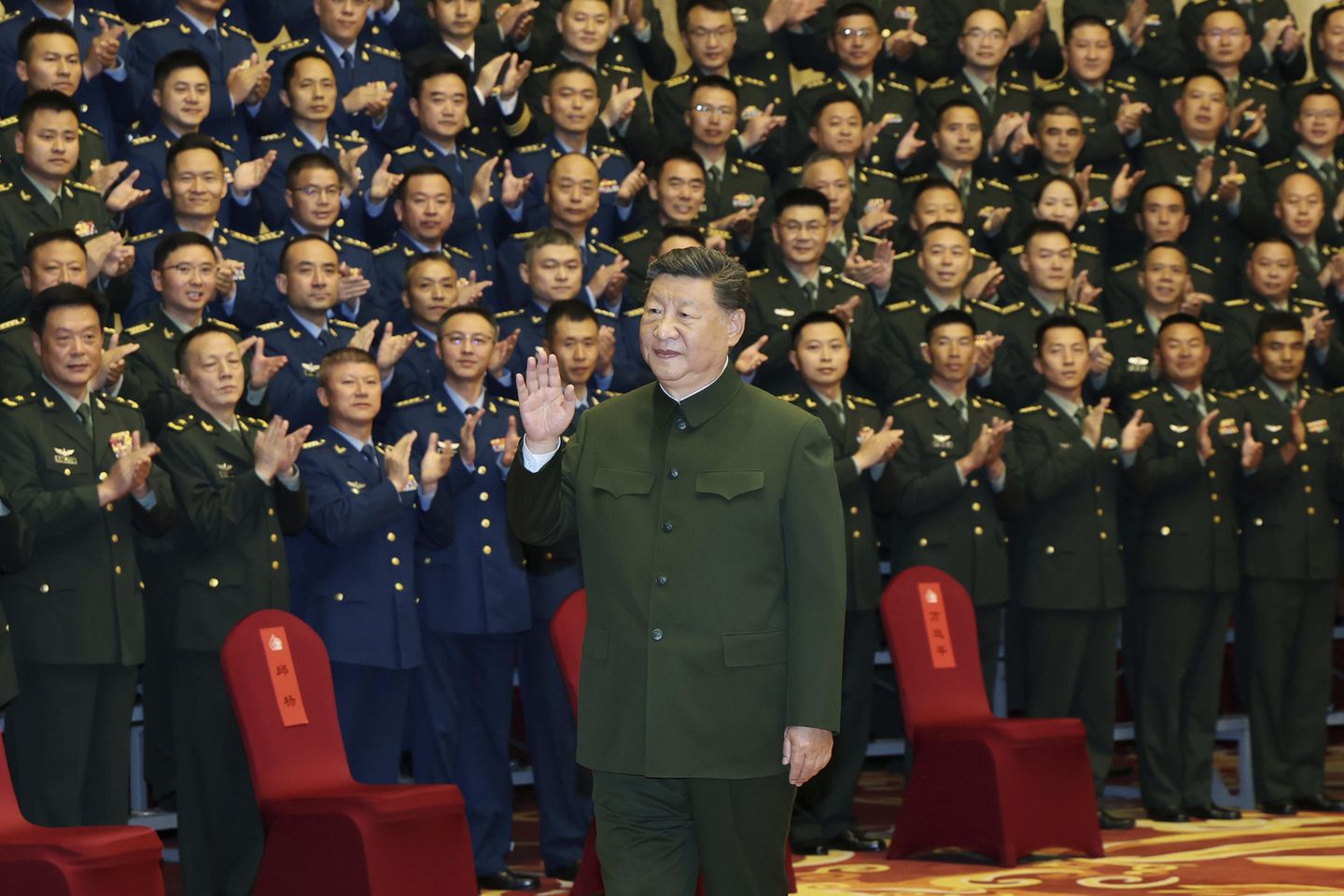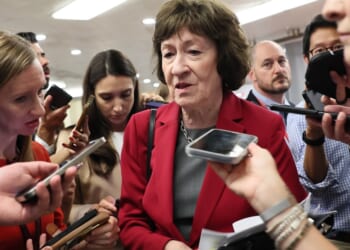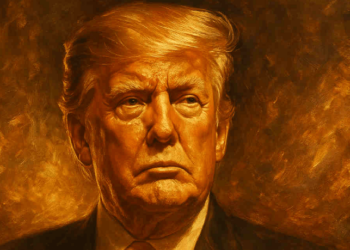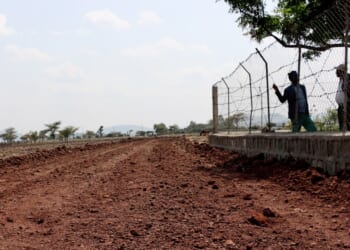
SEOUL, South Korea — Beijing this week deployed a high-visibility charm offensive across Tibet, India and Pakistan, highlighting the region’s importance while leveraging perceived American diplomatic missteps.
Chinese President Xi Jinping visited annexed Tibet for two days, while Foreign Minister Wang Yi toured New Delhi and Islamabad.
Two issues are simmering in the background of those visits to three contiguous areas of critical strategic relevance to China.
One is an ongoing clash between Tibet’s Dalai Lama and Beijing over his succession. The clash is casting harsh light on China’s assimilation of Tibet and related tensions.
The other is the dire state of New Delhi-Washington ties, a situation that analysts say offered Beijing the opportunity to reset long-troubled Sino-Indian relations.
Tibetan troubles
During Mr. Xi’s visit to Tibet — just the second during his 12-year presidency — he called on the autonomous region “to continue advancing its four major tasks — ensuring stability, facilitating development, protecting the eco-environment and strengthening frontiers,” according to news agency Xinhua.
The visit celebrated “60 years of historic progress,” Xinhua wrote. The “Tibetan Autonomous Region,” or TAR, was established by Beijing in 1965.
China invaded Tibet in 1950, annexing it in 1951. Today’s TAR — “Xizang” in Chinese — is ruled from Beijing, which has promoted heavy settlement in the region by Han Chinese.
While Beijing hails its modernization and development of Tibet, it has to face the Dalai Lama, a vocal critic who enjoys widespread global respect.
The Dalai Lama fled Tibet during a failed, U.S.-backed 1959 uprising against Chinese rule. He has since lived in exile in Dharamshala, India, and in 1962, promulgated a democratic constitution for his nation.
The spiritual leader of Tibetan Buddhism is 90 years old. In July, he made clear that he and his associates would appoint his successor. That was contested by Beijing, which claims the right to name a successor, although it is officially atheist.
Mr. Xi did not reference the Dalai Lama during his trip. However, state media alluded to his priorities in Lhasa.
“Since assuming the top office, Xi has consistently emphasized safeguarding national unity and fostering ethnic solidarity as the foremost tasks in work related to Xizang,” Xinhua wrote.
Ethnic and religious minorities’ resistance to Han rule has historically challenged leaders in Beijing, who fear national fractures and civil conflict.
“If Tibet and its population were to gain more autonomy, this would highly diminish China’s legitimacy regarding the control of its minorities,” according to University of Florida academic Jimena Untiveros. “Losing control over the Tibetan population would cause a chain reaction in which other minority groups that have separatist claims would also try to follow the steps of the Tibetans, starting with the Xingjian region and the [Muslim] Uyghurs.”
Tibetans inside the country were not critical during Mr. Xi’s visit. Exiled compatriots were.
“For Tibetans, the anniversary of [China’s] creation of the TAR is no cause for celebration; it is a painful reminder of over six decades of China’s colonial occupation,” wrote Dorjee Tseten, a member of Tibet’s parliament in exile, in a note to reporters. “No political theater can conceal the truth of human rights repression in Tibet and the ongoing erasure of Tibetan identity through colonial boarding schools. … Tibetans will never accept Beijing’s imposed Dalai Lama succession plan.”
Geography, security, diplomacy
Tibet is critical to China for reasons beyond ethnic integration.
“Xi Jinping’s visit to Lhasa only underscores Tibet’s strategic importance to China, coinciding with his foreign minister’s visit to India and speculation about his hold on power,” Mr. Tseten wrote.
The latter point references speculation that Mr. Xi’s mishandling of COVID-19 and economic problems that have persisted since the pandemic are weakening his rule.
With futurists warning of water wars, the Tibetan plateau, called “Asia’s Water Tower,” gives Beijing control over regional river sources. The Sutlej and Indus rivers flow through India and Pakistan, while the Mekong winds through Southeast Asian states.
The vast, rugged plateau provides a strategic buffer against democratic India, which contests control of Himalayan terrain. China and India fought a high-altitude border war in 1962 and have skirmished since, most recently in 2020.
India’s neighbor Pakistan, meanwhile, provides China with a land corridor to the Arabian Sea. The Karakoram Highway starts in China’s restive Xinjiang Province, connects to Pakistan’s road network, and leads to Gwador Port, near the Iranian border.
Mr. Wang this week visited India and then Pakistan.
In Islamabad Thursday, he met Prime Minister Shehbaz Sharif, telling him, “China has always been the most reliable partner and strongest supporter for Pakistan.”
The two nations have partnered on infrastructure, commercial concerns and the military. In May, Chinese-supplied aircraft and missiles proved effective against Indian jets during a six-night conflict, when India struck what it claimed were Islamic terrorist sites inside Pakistan.
Mr. Sharif told Mr. Wang that he would attend the Shanghai Cooperative Organization summit in Tianjin, China, on Aug.31-Sept 1, and a huge military parade commemorating the 80th anniversary of the end of World War II that Mr. Xi will host in Beijing on Sept. 3.
The parade is being considered a way for Mr. Xi to show off his status. Several Southeast Asia leaders and Russian President Vladimir Putin are expected to attend.
Mr. Wang’s sub-continental tour may have been inspired by declining India-U.S. relations.
India has been angered by Washington’s mediation of the May conflict; by President Trump’s welcome of a Pakistani military delegation to the White House; and by his imposition of 50% tariffs on Indian goods — the region’s highest rate.
“Given the tensions between the U.S. and India, and unmet expectations in India, China may have smelled blood,” said Rob York, director of regional affairs at the Pacific Forum. “Then, maybe the stop in Islamabad was to show China it is not tilting too far to India, that the relationship is not that deep.”
















